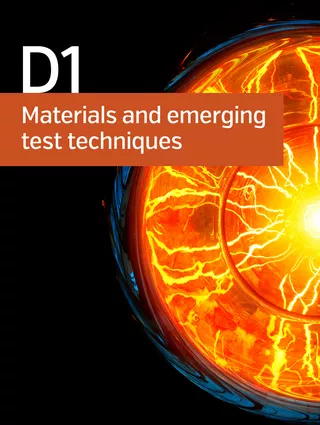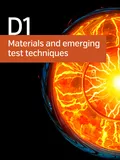Summary
This report is the result of work performed under Cigré Working Group D1.27 (Material Properties for New and Nonceramic Insulation) between 2009 and 2014. Relevant literature with focus on testing DC tracking and erosion properties of composite outdoor insulation was reviewed. It was noted that in spite of various material tests (DC salt fog test, DC rotating wheel dip test, DC inclined-plane test), no reports on actual erosion on HVDC composite outdoor insulation in service have been reported. It is concluded that the key parameter is not alone to optimize a material for maximal erosion resistance under HVDC, but to supress the resistive leakage currents from reaching values where electrial discharges are initiated. A Round Robin Test (RRT) was performed based on the DC inclined-plane test, described in the Chinese Standard DL/T 810-2002. In order to minimize errors, all tests were performed using identical materials and new electrodes, provided in complete test packages. In spite of this, large variations in results were observed between the participating laboratories. Since several of the evaluated materials have a proven service experience these would be unnessicarily disqualified. In consequence, and in view of many uncertainties in the test definition and control, this test is not recommended to become a IEC standard. For the time being, and based on service experience it is recommended that the resistance to tracking and erosion of insulating materials used in DC application is tested under AC stress according to IEC 60587. The ranking for AC test stresses is similar (i.e. can be transferred) to DC test stresses within one group of insulating materials for polymeric insulators (e.g. silicones,) if the test parameters are adapted (lowered in flow rate and/or test voltage for DC). The test severity of 4.5 kV AC and 0.6 ml/min is similar to 4.5 kV DC and 0.2 ml/min (i.e. Chinese Standard DL/T 810-2002). To gain further experience, the study may be continued by performing another RRT with improved test specifications, equipment specification and defined data collection. Specific factors for consideration are flow rate, electrode corrosion, electrode surface roughness, stability of the power source and composition of the electrolyte.
Additional informations
| Publication type | Technical Brochures |
|---|---|
| Reference | 611 |
| Publication year | |
| Publisher | CIGRE |
| Study committees | |
| Working groups | WG D1.27 |
| File size | 2 MB |
| Pages number | 33 |
| Price for non member | 80 € |
| Price for member | Free |



